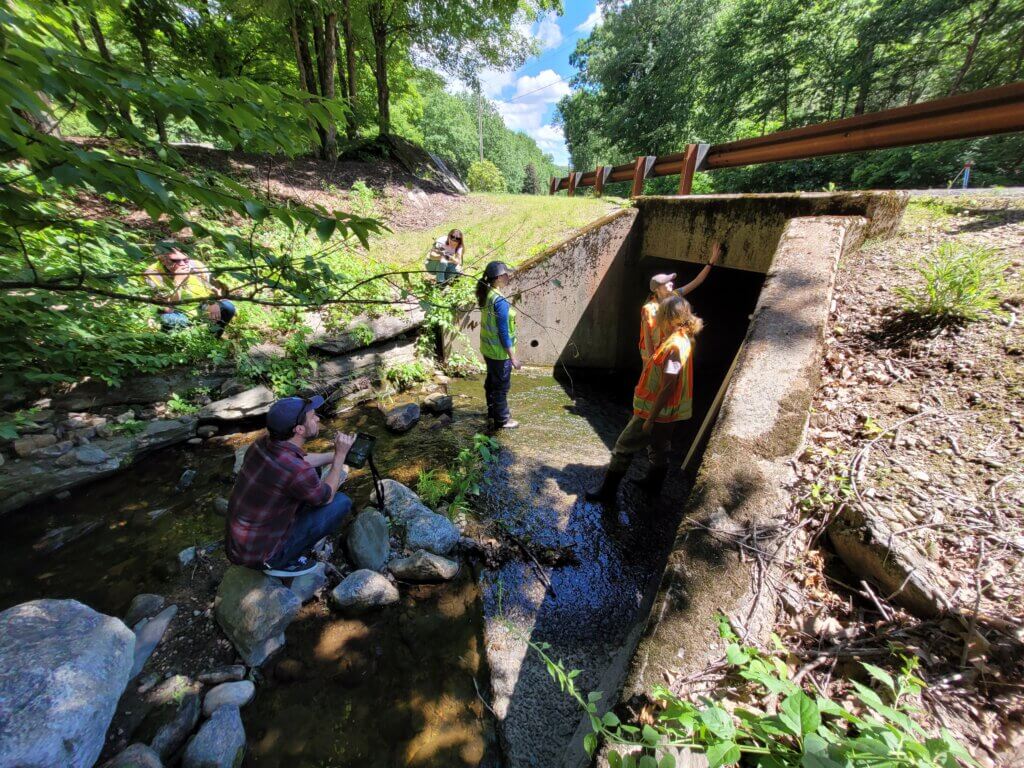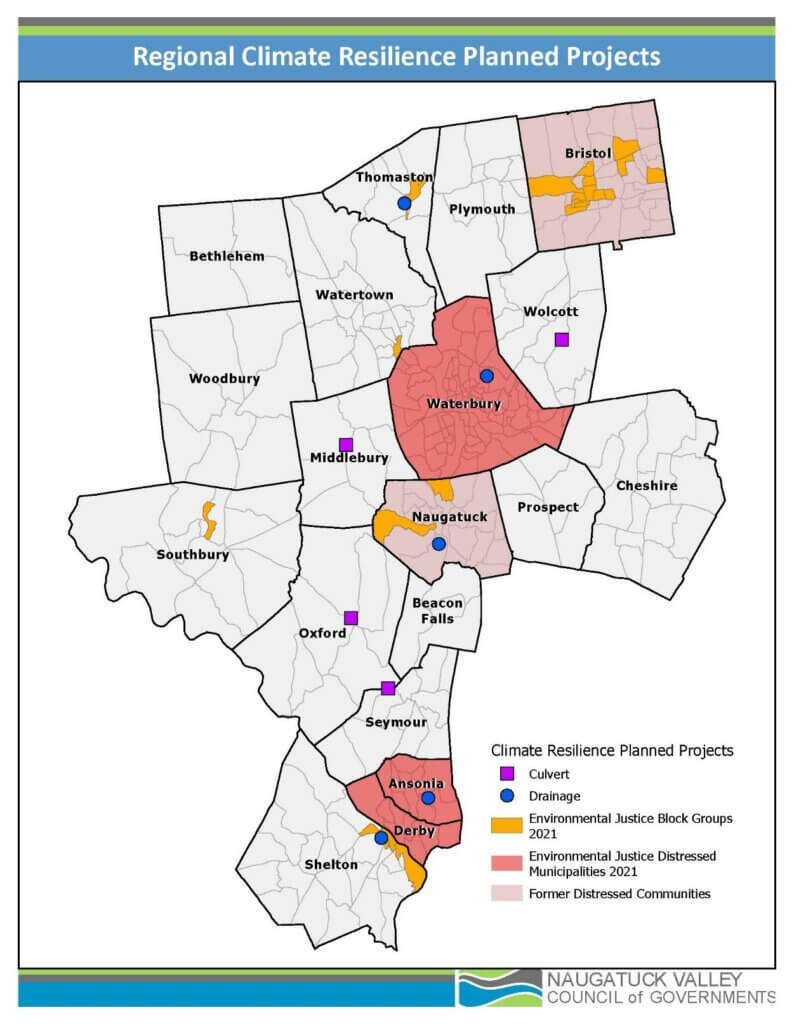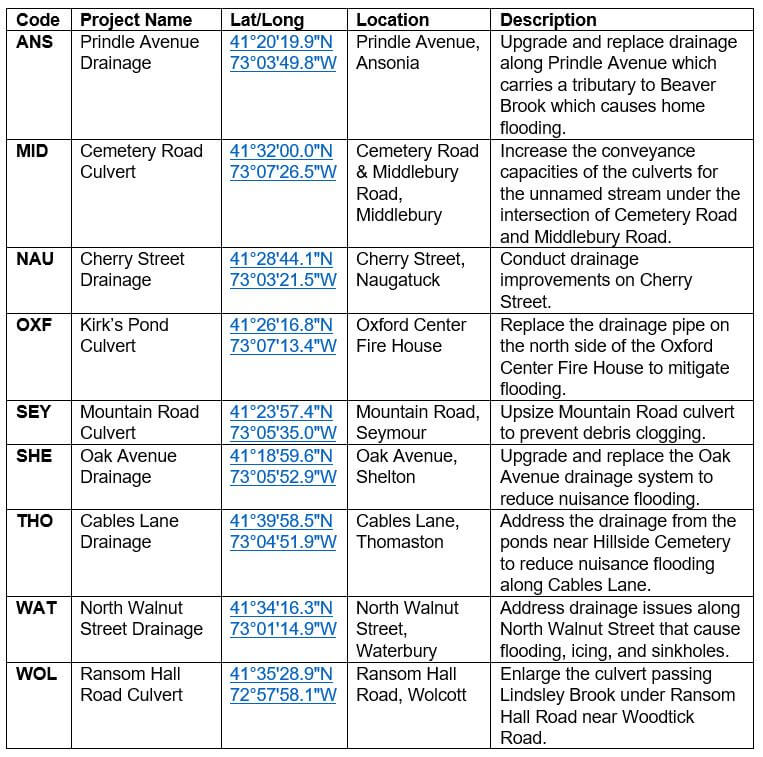Background
The State Department of Energy and Environmental Protection launched the Climate Resilience Fund to create a pipeline of shovel-ready projects eligible for federal implementation grants. NVCOG worked with our municipalities to prioritize sites at risk of flooding that had been previously identified in the Multijurisdictional Natural Hazard Mitigation Plan.
The resulting project area includes nine culverts or drainage sites, four of which fall into disadvantaged/EJ census tracts, spanning our region. COG staff will hire a consultant to study these areas, design preliminary solutions, and identify federal funding sources for implementation.

Flooding Challenges in the NVCOG Region
Per the NVCOG Multijurisdictional Natural Hazard Mitigation Plan 2021-2026 (January 2022), “Flooding is the most common natural hazard encountered in the NVCOG region” and “All 19 municipalities in the region are impacted by floods on a regular basis.” Climate change has amplified these issues. With heavy, localized flash flooding becoming a recurrent problem in the region, millions of dollars in damages have resulted due to outdated culverts and drainage systems. The region’s infrastructure faces challenges in matching current and future climate realities.
CT DEEP’s Climate Resilience Fund
This grant from CT DEEP’s Climate Resilience Fund is intended to advance critical flood mitigation projects that have been (1) identified in previous planning processes across the NVCOG region and (2) prioritized by municipal officials. It involves the study and development of initial designs providing important information that will support successful future grant applications for implementation.
The nine projects fall within the municipalities of Ansonia, Middlebury, Naugatuck, Oxford, Seymour, Shelton, Thomaston, Waterbury, and Wolcott.
To the extent that local conditions will allow for the implementation of these projects using green infrastructure techniques, they can have a larger impact downstream by, for instance, reducing peak storm flows through stormwater infiltration or retention/detention. Replacing culverts with fish- or wildlife- friendly conveyances can help make those populations more resilient to future change by creating a refuge from heat or other conditions.
Deliverables
NVCOG has partnered with the experts at Save the Sound to accomplish these goals. COG staff plans to hire a consultant to develop reports and draw up preliminary designs for each of the nine projects. The consultant will also identify appropriate funding sources for implementation and draft grant applications.


Public Involvement Process
The NVCOG team is currently developing a public engagement process to ensure reaching a broad audience with this project. Please send any outreach ideas or requests to Christine O’Neill at coneill@nvcogct.gov.
Stay Updated on Social Media
In addition to this website, NVCOG staff will keep you up-to-date regarding the project’s status and progress on NVCOG’s social media platforms, which include Facebook, Twitter, and LinkedIn.
Our Partners
These dedicated partners stand alongside NVCOG in the mission to enhance climate resilience and sustainability in the region.
Related Resources
Explore these valuable resources to gain insights into climate resilience efforts and projects.
Staff Contact:
Christine O’Neill
Environmental Planner II
coneill@nvcogct.gov
